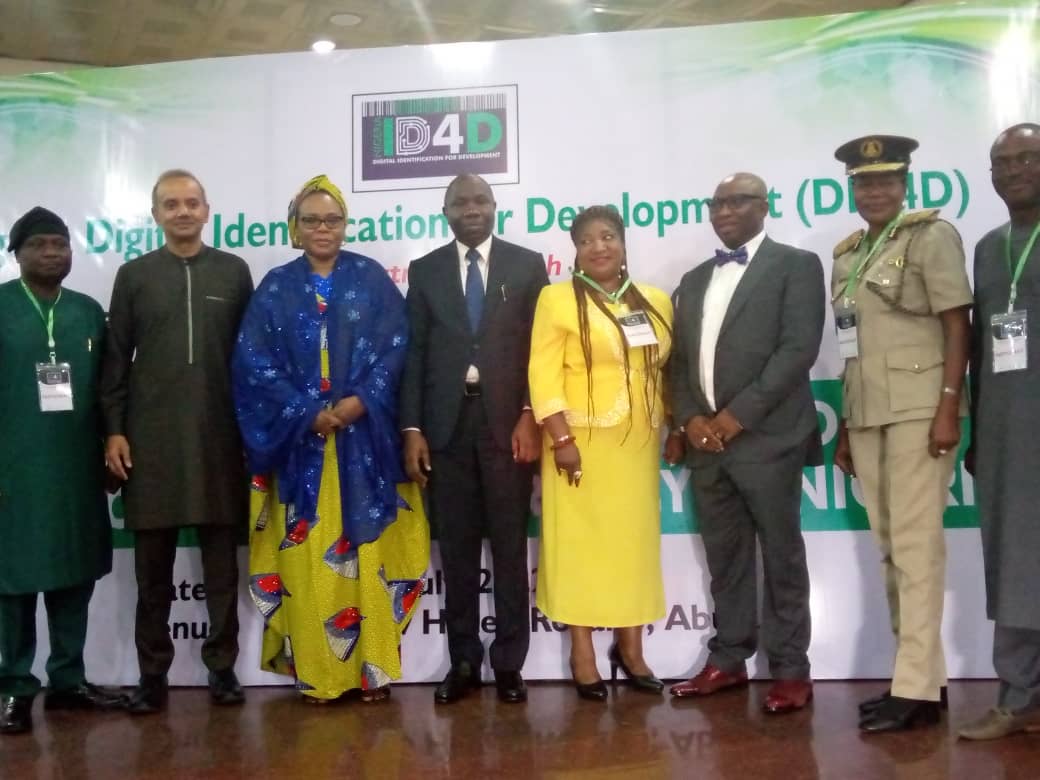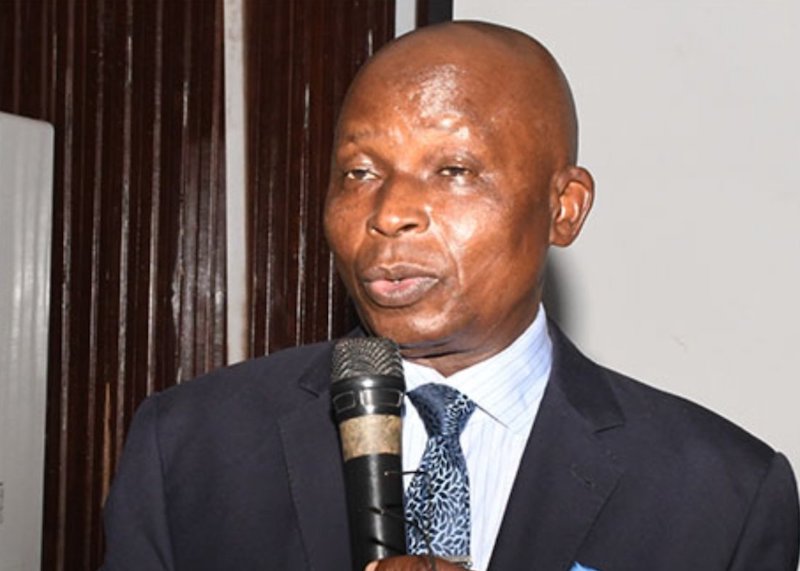By Chimezie Godfrey
The Nigeria Digital Identification for Development Project ( Nigeria Digital ID4D) in collaboration with the National Data Protection Bureau (NDPB) has convened a policy dialogue to fast-track the enactment of a principal data protection legislation for Nigeria.
In his address at the 2-Day “Policy Dialogue on the Nigeria Data Protection and Privacy Law,” held on Tuesday in Abuja, the Project Coordinator, Nigeria Digital ID4D, Mr Musa Odole Solomon noted that the occasion marks a new beginning in the annals of data protection and digital economy in the country.
Solomon stressed that data protection in Nigeria is a constitutional matter, adding Section 37 of the 1999 Constitution of the Federal Republic of Nigeria provides for privacy and data protection.
According to him,”It expressly says and I quote that “the privacy of citizens, their homes, correspondence, telephone conversations and telegraphic communications is hereby guaranteed and protected.”
He noted that there are also subsidiary legislation and regulations that protect citizens’ data in Nigeria, however, the country has no principal legislation that guarantees the safety and security of the data of her citizens.
Solomon who acknowledged the fact that previous efforts in that direction did not yield the desired result said that the essence of the policy dialogue is to ensure that Nigeria has a robust legal framework for Data protection.
He said,”Presently, efforts are being intensified to ensure that citizens enrol for and acquire the National Identity Number. The NIN will enable the country to have a national database to guide the government in planning.
“In addition to other numerous benefits, the National Identity project aligns with number 16.9 of the Sustainable Development Goals (SDG). which expects that by 2030, every person in the world should have a digital identity. Therefore, every person should have a legal form of identity. Nigeria, and indeed, Africa, should not be left behind.
“Identity is a human right and not having any form of legal identity makes one invincible.
“However, it is one thing to assemble citizens’ data, and another to ensure that such data are utilized in a responsible manner. This can only be achieved through a proper legislation.
“We need to continue to enhance the trust of the people. We must assure citizens of the security of their data. The level of success or failure of the Nigerian Identity project will be measured by the trust of the people.
“Many other countries of the world have data protection laws and it is our desire to ensure that our own is passed as soon as possible.
“Ensuring the enactment of a data protection law is one of the mandates of the Nigeria Digital Identification for Development project. 13. This Policy Dialogue, therefore, seeks to bring together critical stakeholders to deliberate on the way forward, towards the enactment of a principal Data Protection legislation for Nigeria.
“The Dialogue is part of an elaborate, ongoing efforts towards ensuring that Nigeria has a robust legal framework for Data protection. We assure you that the inputs from stakeholders shall be collated to enrich the draft Data Protection Bill for further actions.”
The Project Coordinator assured that they will continue to partner with the NDPB and all other stakeholders, in the interest of every Nigerian.
He expressed gratitude to President Muhammadu Buhari and the entire Federal Executive Council for their invaluable support.
He further appreciated the Secretary to the Government of the Federation, the Honourable Minister for Communications and Digital Economy, Federal Ministry of Finance, the National Identity Management Commission, National Population Commission, the Nigeria Immigration Service, and all other Ecosystem implementing partners for opening their doors wide open for the Nigeria ID4D project.
Solomon thanked their funding partners which include, the World Bank, European Investment Bank and French Development Agency.
He pledge to Nigerians that the ID4D’s Project Development Objective, which is to increase the number of persons with a National Identity Number (NIN), issued by a robust and inclusive foundational identity system, that facilitates their access to services, is achieved.
He also explained that the Nigeria Digital ID4D project is designed, to follow an ecosystem model and thus not limited to any single organisation. It, therefore, involves different agencies of the government, the private sector and civil society.
The Minister of Communications & Digital Economy, Prof. Isa Pantaminoted that the growing dependence by businesses on information technology (IT) to manage their data has led to increase in information security and privacy risks implications, adding that Data has become a highly sought commodity and more people are concerned about how their data is stored, processed, and transmitted.
According to him, big data, availability of advanced data analytics tools, and surge in surveillance activities have transformed into a mass resurgence of the desire to have data collected and processed.
He said with globalization and rapid technological advancements, there is obviously increased capability for organisations or businesses to perform these transactions on data.
“However, there is need to do this only on legal bases and for specified purposes. Across the globe today, data protection and privacy regulations are currently undergoing developments that have significant impact on digital economies.
“I am therefore pleased that the Nigeria Data Protection Bureau in partnership with the Nigeria Digital Identification for Development Project as well as other key stakeholders have organized this dialogue to ensure adequate stakeholder engagement towards birthing an all-inclusive data protection law for Nigeria.
“The principles and rules of data protection and privacy are universally recognized, and the 1999 Constitution of the Federal Republic of Nigeria (as amended) equally recognizes the right to privacy. Issues around protection of citizen’s telephone conversation, correspondences, telegraphic communications, etc. are covered under section 37 of the 1999 constitution of the Federal Republic of Nigeria,” he said.
Pantami stressed that policy and regulation are integral to forming an enabling environment that promotes innovation and fosters the emergence of innovative agents for the attainment of the Sustainable Development Goals (SDGs). The growth of Nigeria’s digital economy drives innovations and free flow of data which in turn implies the need to safeguard the rights, freedom, and privacy of citizens.
He noted that data protection legislation provides a legal basis for challenging the collection and unlawful use of data, negligent data handling, incorrect documentation of sensitive information, and growing corporate and state-sponsored surveillance activities.
According to him, at the core of data protection legislation is the desire to protect individual’s right to privacy of their information and to secure lives and property. This is achieved through the implementation of legislations, policies and regulations on data privacy and protection.
He therefore said the call for this National Policy Dialogue (NDP) on Data Protection Law, is timely as it provides the much-needed avenue for wider consultation.
Other articipants at the auspicious event include representatives of Ministries, Departments and Agencies (MDAs), members of the National Assembly, development partners, among others.




